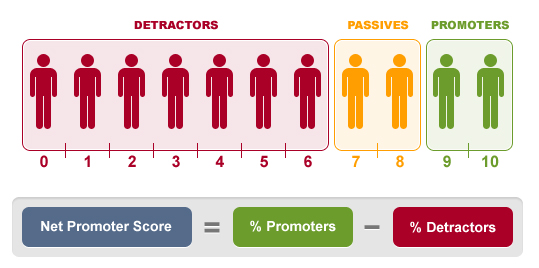How To Find Your Next Speaking Opportunity In 8 Easy Steps
As event professionals, we often find ourselves caught up in the hustle of attending and exhibiting at numerous events, leaving little room to seek out speaking opportunities. However, many of us are passionate and knowledgeable speakers who are just waiting for that next big chance to share our message with the world.
Moreover, it can be quite challenging to come across speaking opportunities that align perfectly with our expertise and target audience. That's why we've put together a list of five simple steps that will not only help you secure your next speaking engagement but also allow you to showcase your skills as a dynamic and impactful speaker.
So, let's dive right in and discover how you can find your next speaking opportunity in no time!
1. Attend Industry Events and Conferences
Attending industry events and conferences is a tried and true method for finding speaking opportunities. These events are filled with professionals who are eager to learn from experts in their field. By attending these events, you not only have the chance to network with potential event organizers, but you also get a sense of the industry landscape and the types of topics that are currently in demand.
To make the most of your time at industry events and conferences, be sure to come prepared. Bring your business cards, a concise elevator pitch, and any marketing materials or samples of your work that showcase your expertise as a speaker. Engage in conversations with fellow attendees, ask questions during sessions, and actively participate in networking events.
By doing so, you not only increase your visibility, but you also have the opportunity to establish yourself as a thought leader and make connections that may lead to future speaking engagements.
See a list of global events in 2024
2. Check out industry calendars for best match
One valuable resource that should not be overlooked when searching for speaking opportunities are industry calendars. These calendars are curated lists of events, conferences, and seminars happening within your industry. By checking out industry calendars, you can easily find events that are the best match for your speaking goals.
Industry calendars provide a comprehensive overview of upcoming events, including the dates, locations, and themes of each event. This allows you to quickly identify which events align with your expertise and the topics you are passionate about. Additionally, industry calendars often provide website information for event organizers, making it easy for you to reach out and express your interest in speaking at their event.
By utilizing industry calendars, you save time and effort in finding speaking opportunities that are tailored to your needs. Instead of searching through numerous websites and event listings, industry calendars provide a centralized hub where you can find all the information you need in one place. This allows you to streamline your search process and focus on connecting with the right event organizers.
Explore 2024 MICE Events Calendar
3. Utilize Your Network
Utilizing your network is a powerful way to find speaking opportunities that may not be publicly advertised. Start by reaching out to your friends, family, and colleagues and let them know that you are actively seeking speaking opportunities. They may be able to provide you with leads or introductions to event organizers or industry contacts who can help you land your next speaking engagement. Don't be afraid to ask for recommendations or referrals; you never know who in your network may have connections in the event industry.
When reaching out to the contacts, be professional and concise in your communication. Keep your email or message focused, highlighting your relevant experience, speaking engagements, and any notable achievements. Show genuine interest in their event and express how you believe your expertise can add value to their audience.
Consider attaching a speaker resume or portfolio to your outreach message, showcasing your speaking experience and testimonials from past events. This will help event organizers get a better understanding of your skills and the impact you can make as a speaker.
Follow up on your initial outreach if you don't receive a response within a reasonable time frame. Sometimes, event organizers may have missed or overlooked your message. By following up, you show your persistence and genuine interest in speaking at their event.
4. Use Google Search and Social Media to Your Advantage
When it comes to Google search, use specific keywords related to your expertise and target audience to find relevant events and conferences. For example, if you are a marketing speaker, search for terms like "marketing conferences" or "industry events in marketing." This will provide you with a list of events and conferences that you can explore.
Similarly, social media platforms such as LinkedIn, Twitter, and Facebook can be valuable resources for finding speaking opportunities. Join industry-specific groups and communities, follow event organizers, and engage with other speakers in your field.
Additionally, use social media to search for hashtags related to your expertise and target audience. This will help you discover relevant conversations and events happening within your industry. Make sure to follow and engage with industry influencers and thought leaders as well. They often share information about upcoming events and may even be looking for speakers themselves.
5. Join Professional Associations
Professional associations bring together like-minded professionals in a specific field or industry. By joining these associations, you gain access to a wealth of resources and networking opportunities that can help you connect with event organizers and discover new speaking engagements.
These associations often host their own events, conferences, and seminars, which provide a platform for members to share their expertise and showcase their speaking skills. These events attract industry professionals and decision-makers, creating valuable opportunities for you to establish yourself as a thought leader and make connections that can lead to future speaking engagements.
Additionally, professional associations typically have online directories or member profiles that highlight the expertise and qualifications of their members. By including your speaking experience and topics of expertise in your profile, you increase your visibility and make it easier for event organizers to find you when they are looking for speakers.
Beyond speaking, you can attend educational workshops and webinars, gain access to industry research and publications, and participate in mentoring programs. These resources can help you enhance your speaking skills, stay updated on industry trends, and strengthen your expertise, making you an even more sought-after speaker.
6. Start Local
Your local community can provide a wealth of speaking engagements that are often overlooked by other speakers. By speaking locally, you not only have the chance to connect with your community and make a positive impact, but you also build a strong foundation for your speaking career.
Start by reaching out to local organizations, clubs, and associations that align with your expertise. These groups are often in need of speakers for their meetings and events. Whether it's a small business association, a club, or a community center, these organizations are always looking for knowledgeable speakers who can provide valuable insights and expertise to their members.
Additionally, consider volunteering to speak at local schools, libraries, and non-profit organizations. These venues often have events and programs where they invite speakers to share their knowledge and inspire their audiences. By volunteering your time and expertise, you not only contribute to your community but also gain valuable experience and exposure as a speaker.
7. Build a Speaker Portfolio
A speaker portfolio is an essential tool for showcasing your expertise and skills as a speaker. It is a collection of materials that demonstrate your speaking experience, areas of expertise, and the impact you have made on previous audiences. By building a comprehensive speaker portfolio, you not only provide potential event organizers with a clear understanding of what you bring to the table, but you also establish yourself as a professional and credible speaker.
To create an effective speaker portfolio, start by gathering materials that highlight your speaking experience. This can include videos of your past speaking engagements, testimonials from previous clients or audience members, and any press coverage or media appearances you have had. Be sure to also include a bio and headshot, as well as a list of topics you are knowledgeable and passionate about.
Having a strong speaker portfolio not only sets you apart from other speakers, but it also serves as a powerful marketing tool. When reaching out to event organizers or promoting your speaking services, you can easily share your portfolio to demonstrate your expertise and convince potential clients of your value as a speaker.
So, take the time to build a speaker portfolio that truly reflects your skills, experience, and passion as a speaker.
8. Keep Learning and Improving
As a speaker, it is important to continuously learn and improve your skills in order to stay relevant and deliver impactful presentations. The speaking industry is constantly evolving, and by keeping up with the latest trends and techniques, you can ensure that you are delivering the best possible experience for your audience.
One way to continue learning is to attend workshops, seminars, and webinars that are specifically tailored for speakers. These events often cover topics such as storytelling, audience engagement, and stage presence, which can help you enhance your speaking abilities.
Another way to improve as a speaker is to seek feedback from others. After each speaking engagement, ask for honest feedback from audience members, event organizers, and fellow speakers. This feedback can help you identify areas of improvement and provide valuable insights into your strengths and weaknesses. Consider joining a speaking group or finding a mentor who can offer guidance and support in your speaking journey.
Finally, make it a habit to watch and study other speakers. By observing successful speakers in your industry, you can gain inspiration and learn new techniques that you can incorporate into your own presentations. Pay attention to their delivery, body language, and storytelling abilities. Take note of what makes them successful and try to incorporate those elements into your own speaking style.
Stay curious, seek feedback, and never stop striving to be the best speaker you can be. Your commitment to growth and improvement will set you apart and ensure your success in the speaking industry.
.png?width=150&height=61&name=explori_logo%20(1).png)


